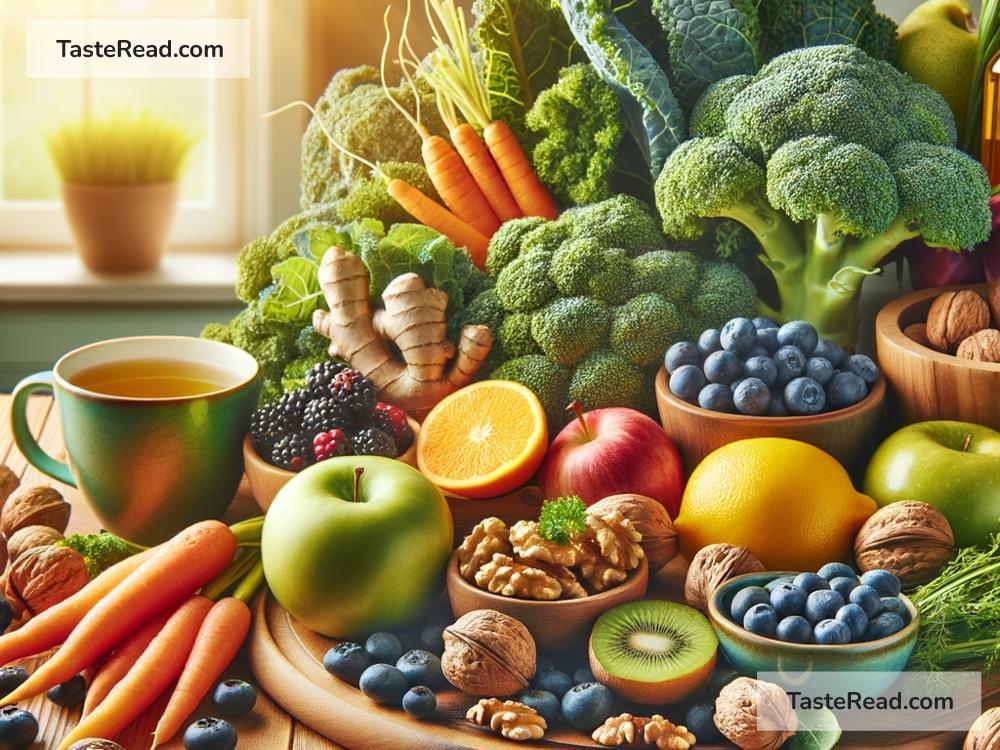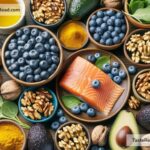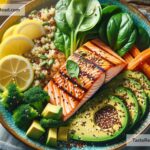Foods for Cancer Prevention: Simple Ways to Stay Healthy
Cancer is a disease that can affect anyone, and while it can’t always be prevented, making certain changes in your diet can help reduce the risk. Many studies suggest that some foods contain nutrients that may protect your body from cancer. Eating a balanced diet filled with colorful fruits, vegetables, and other healthy foods not only helps prevent cancer but also boosts your overall health.
This blog will share easy-to-understand information about foods for cancer prevention. By adding these nutritious items to your meals, you can take small steps toward a healthier life.
How Can Food Help Prevent Cancer?
The food we eat plays a big role in keeping our bodies healthy. Some foods are full of vitamins, minerals, fiber, and antioxidants—nutrients that help fight harmful substances in the body known as free radicals. Free radicals can damage cells, leading to cancer and other serious illnesses.
While no single food can guarantee cancer prevention, a well-balanced diet filled with the right foods can make a big difference. Here are some cancer-fighting foods to consider adding to your plate.
1. Fruits and Vegetables
Why They Help
Fruits and vegetables are packed with vitamins, minerals, fiber, and antioxidants. These nutrients can help repair damaged cells and protect your body from the harmful effects of free radicals.
Examples to Try
- Berries: Blueberries, strawberries, and blackberries contain antioxidants like anthocyanins, which may protect cells from damage.
- Cruciferous Vegetables: Broccoli, cauliflower, cabbage, and kale are rich in compounds like sulforaphane, which may reduce cancer risk.
- Tomatoes: These are full of lycopene, an antioxidant that may help prevent certain types of cancer, especially prostate cancer.
- Leafy Greens: Spinach, lettuce, and Swiss chard are excellent sources of vitamins and antioxidants.
How to Eat Them
Eat a variety of colorful fruits and vegetables daily. Add berries to cereal, chop up vegetables for salads, or enjoy steamed broccoli as a side dish. Aim for at least five servings a day.
2. Whole Grains
Why They Help
Whole grains, like oats, brown rice, quinoa, and whole wheat bread, are high in fiber. Fiber helps keep your digestive system healthy and may lower the risk of colon cancer.
Examples to Try
- Oats: Great for breakfast or snacks.
- Brown Rice: Use as a side dish or in stir-fries.
- Whole Wheat Bread: Swap white bread for whole-grain options.
- Barley and Quinoa: Alternatives to rice with added nutrients.
How to Eat Them
Replace refined grains (like white bread or white rice) with whole grains during meals. Add oatmeal to your breakfast or try whole-grain pasta in your favorite recipes.
3. Healthy Fats
Why They Help
Not all fats are bad! Healthy fats, such as those found in olive oil, nuts, seeds, and avocados, can reduce inflammation in your body. Chronic inflammation can increase the risk of cancer.
Examples to Try
- Olive Oil: Use for cooking or as salad dressing.
- Nuts and Seeds: Almonds, walnuts, sunflower seeds, and chia seeds are great snacks.
- Avocados: Add them to sandwiches or make guacamole.
How to Eat Them
Replace unhealthy fats (such as butter or fried oils) with healthier fat options. Toss salads with olive oil or snack on a handful of almonds.
4. Fish and Lean Protein
Why They Help
Fish, especially fatty fish like salmon, mackerel, and sardines, contains omega-3 fatty acids that reduce inflammation and may lower cancer risk. Lean proteins like chicken, tofu, and beans can also support overall health.
Examples to Try
- Salmon: Bake or grill for a healthy meal.
- Beans and Lentils: Add to soups or salads.
- Tofu: Use in stir-fries or as a meat substitute.
How to Eat Them
Choose protein sources that are low in fat. Aim to eat fish at least twice a week.
5. Spices and Herbs
Why They Help
Some spices and herbs contain cancer-fighting properties. For example, turmeric contains curcumin, which may prevent cancer cells from growing. Garlic and ginger also contain compounds that can boost your immune system and reduce inflammation.
Examples to Try
- Turmeric: Use in soups or sprinkle over roasted vegetables.
- Garlic: Add to pasta, sauces, or stir-fries.
- Ginger: Brew as tea or use in smoothies.
How to Eat Them
Experiment with different spices and herbs in your cooking. Not only will they enhance the flavor of your meals, but they may also bring additional health benefits.
Bonus Tips for Cancer Prevention
- Cut Down on Sugar and Junk Food: These foods don’t offer much nutrition and can contribute to weight gain, which is linked to certain cancers.
- Drink Green Tea: Green tea contains antioxidants that may reduce cancer risk. Swap soda or sugary drinks for this healthy option.
- Avoid Processed Meats: Bacon, sausage, and deli meats are linked to a higher risk of cancer. Opt for fresh, unprocessed protein instead.
Final Thoughts
Foods for cancer prevention are not magical cures, but they play an important role in keeping your body strong and healthy. By eating a diet rich in fruits, vegetables, whole grains, healthy fats, and lean proteins, you can support your immune system and reduce your risk of developing cancer.
Remember, healthy eating is only one part of cancer prevention. It’s also important to stay active, limit alcohol, avoid smoking, and get regular check-ups with your doctor. These small changes can make a big difference in your overall health.
So, start today—add more colorful, nutritious foods to your plate and enjoy the gift of better health for years to come!


